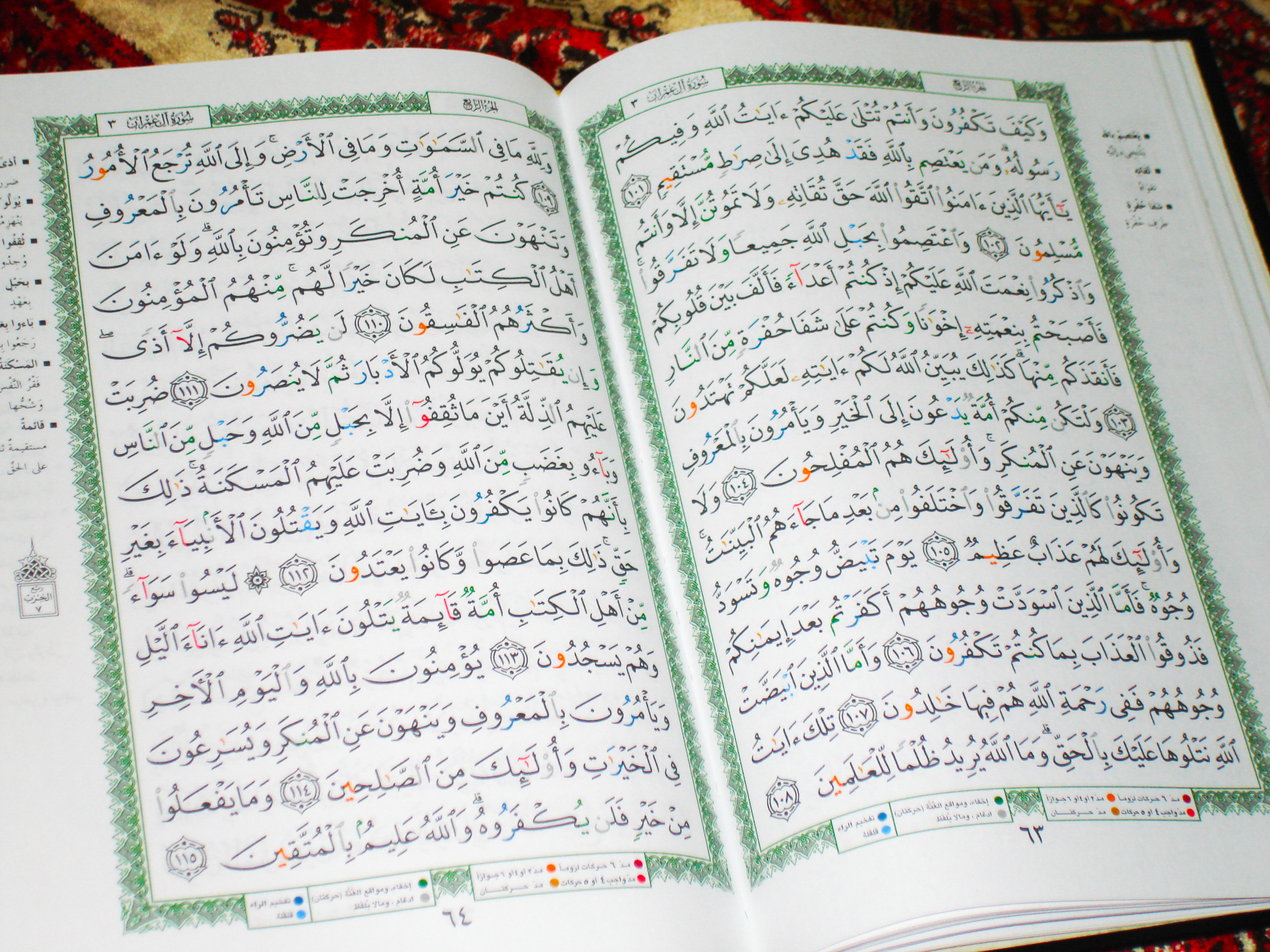Mus'haf on:
[Wikipedia]
[Google]
[Amazon]
 A muṣḥaf ( ar, مُصْحَفْ, ; plural ''maṣāḥif'') is an Arabic word for a
A muṣḥaf ( ar, مُصْحَفْ, ; plural ''maṣāḥif'') is an Arabic word for a
The Difference Between "Qur'an" and "Mushaf"
{{Quranic manuscripts Arabic words and phrases Quran Islamic terminology
 A muṣḥaf ( ar, مُصْحَفْ, ; plural ''maṣāḥif'') is an Arabic word for a
A muṣḥaf ( ar, مُصْحَفْ, ; plural ''maṣāḥif'') is an Arabic word for a codex
The codex (plural codices ) was the historical ancestor of the modern book. Instead of being composed of sheets of paper, it used sheets of vellum, papyrus, or other materials. The term ''codex'' is often used for ancient manuscript books, with ...
or collection of sheets, but also refers to a written copy of the Quran
The Quran (, ; Standard Arabic: , Quranic Arabic: , , 'the recitation'), also romanized Qur'an or Koran, is the central religious text of Islam, believed by Muslims to be a revelation from God. It is organized in 114 chapters (pl.: , ...
. The chapters of the Quran
The Quran (, ; Standard Arabic: , Quranic Arabic: , , 'the recitation'), also romanized Qur'an or Koran, is the central religious text of Islam, believed by Muslims to be a revelation from God. It is organized in 114 chapters (pl.: , ...
, which Muslim
Muslims ( ar, المسلمون, , ) are people who adhere to Islam, a monotheistic religion belonging to the Abrahamic tradition. They consider the Quran, the foundational religious text of Islam, to be the verbatim word of the God of Abrah ...
s believe was revealed during a 23-year period in Muhammad
Muhammad ( ar, مُحَمَّد; 570 – 8 June 632 CE) was an Arab religious, social, and political leader and the founder of Islam. According to Islamic doctrine, he was a prophet divinely inspired to preach and confirm the mon ...
's lifetime, were written on various pieces of paper during Muhammad's era. Two decades later, these papers were assembled into one volume under the third caliph
A caliphate or khilāfah ( ar, خِلَافَة, ) is an institution or public office under the leadership of an Islamic steward with the title of caliph (; ar, خَلِيفَة , ), a person considered a political-religious successor to th ...
, Uthman ibn Affan, and this collection has formed the basis of all written copies of the Quran to the present day.
In Arabic, ''al-Qur’ān'' means 'the Recitation
A recitation in a general sense is the act of reciting from memory, or a formal reading of verse or other writing before an audience.
Public recitation is the act of reciting a work of writing before an audience.
Academic recitation
In a ...
', and Islam states that it was recited orally by Muhammad after receiving it via the angel Gabriel
In Abrahamic religions (Judaism, Christianity and Islam), Gabriel (); Greek: grc, Γαβριήλ, translit=Gabriḗl, label=none; Latin: ''Gabriel''; Coptic: cop, Ⲅⲁⲃⲣⲓⲏⲗ, translit=Gabriêl, label=none; Amharic: am, ገብ� ...
. The word ''muṣḥaf'' is meant to distinguish between Muhammad's recitations and the physical, written Quran. This term does not appear in the Quran itself, though it does refer to itself as a ''kitāb'' (كِتَابٌ), or book or writings, from yaktubu (يَكْتُبُ) or to write, in many verses.
Some Islamic scholars also use the term ''muṣḥaf'' to refer to all the revelations contained within the book itself, while using ''al-Qur’ān'' to refer to all verses revealed to Muhammad during his lifetime, including those abrogated and removed from the ''muṣḥaf'' prior to its final written form, as mentioned in some Hadith
Ḥadīth ( or ; ar, حديث, , , , , , , literally "talk" or "discourse") or Athar ( ar, أثر, , literally "remnant"/"effect") refers to what the majority of Muslims believe to be a record of the words, actions, and the silent approva ...
. For this reason, these scholars say that there is only one possible version of the Quran, but multiple possible versions of the ''muṣḥaf''.
See also
*Digital Quran
The term digital Quran is used to refer to the text of the Qur'an processed or distributed as an electronic text, or more specifically to an electronic device dedicated to displaying the text of the Qur'an and playing digital recordings of Qur'an ...
*Quranism
Quranism ( ar, القرآنية, translit=al-Qurʾāniyya'';'' also known as Quran-only Islam) Brown, ''Rethinking tradition in modern Islamic thought'', 1996: p.38-42 is a movement within Islam. It holds the belief that traditional religious cl ...
*Topkapı Muṣḥaf
The Topkapi manuscript or Topkapi Quran is an early manuscript of the Quran dated to the early 2nd century AH (i.e., early- to mid-8th century AD).
This manuscript is kept in the Topkapi Palace Museum, Istanbul, Turkey. It is traditionally a ...
* Mus'haf of AliReferences
External links
The Difference Between "Qur'an" and "Mushaf"
{{Quranic manuscripts Arabic words and phrases Quran Islamic terminology